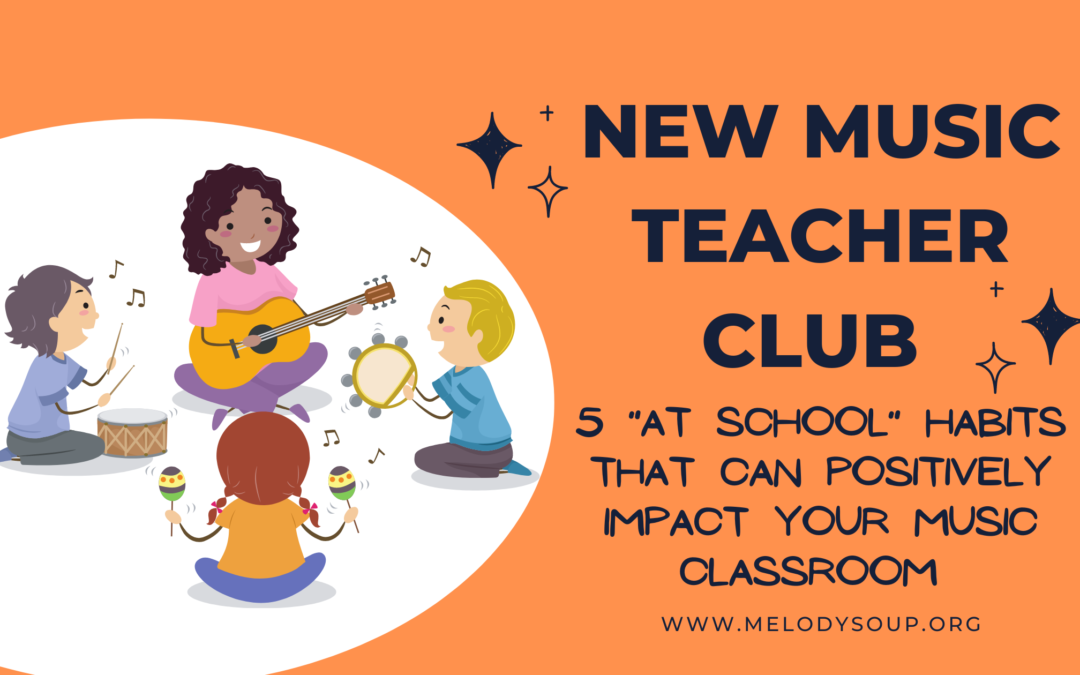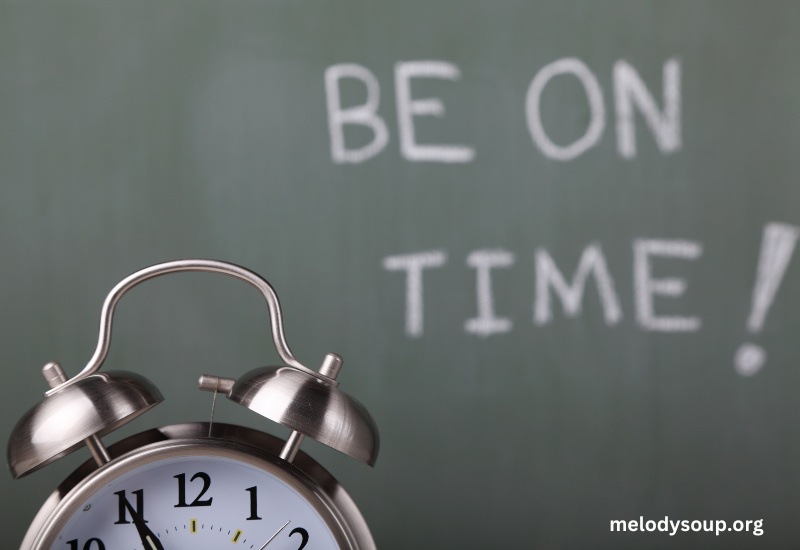Happy New Year! One of my favorite things about being a teacher is that I get two chances at each “New Year”. I get to start the new academic year each August and I get to start a new calendar year on January 1. Today I am going to share a few habits that are worth cultivating at school that can positively impact our music classroom. Leave a comment to let me know which habit you hope to adopt this year.
Be On Time To Work – I am a recovering late person, but in the last few years I have FINALLY figured out what strategies help me get to work on time most often. I can say with confidence that it is SO MUCH HARDER to start a teaching day when running late. Being on time, takes effort, but the payoff of being on time is in being able to greet the day proactively and positively without feeling rushed or disorganized. People define “being on time” differently depending on their personality and preference. As recovering “late person” I define being “on time” as attempting daily to get to school 30 minutes early, being super happy when I occasionally achieve my 30 minute buffer and being entirely satisfied when I arrive 10-15 minutes before contract time starts. If you are struggling with tardiness, remember that sleep issues need medical attention, routines are helpful, and no, you don’t have time to do that “one more thing” before leaving the house.
Enlist Your Students in Classroom Care – School aged children can and should help take care of the classroom. As the teacher, I don’t have to pass out and put away the instruments. I also don’t have to keep track of the house points or flip the schedule. Those two tasks and several others are tasks that I used to do for my students because it seemed easier. It seemed easier because my classroom space and my management of the space and the students within it have not always made room for child development. This is kind of a big shift, especially if you’ve only been in your classroom since August, so instead of return to school, throwing open the cabinets and rearranging everything, think about it, puzzle over it and consider which 1 task you could give over to the children now that it’s January.
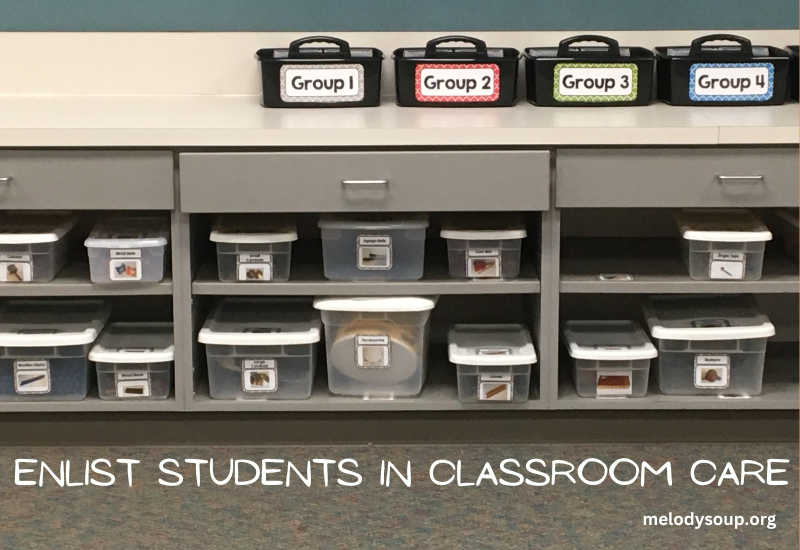
Keep Working On Those Names – It’s January. Before your students arrive, go over their names, and if possible look at photos of the children while you practice their names. I suggest focusing on the students who will be in your class that first day. After school, work through the classes who will come in the next day. Practice the names of your students every day for the first two rotations of your schedule and see if you can add to the number of names you can truly remember. Wouldn’t it be wonderful if when you played a welcome back name game on your first day back with students if you could actually get the names without hesitation or prompting? What a wonderful gift of caring and regard that would be! This morning at church I ran into a dear friend of mine. Her name is Tobey. She is a music teacher who the entire time I’ve been a teacher who is now in her 47th year of teaching! And she is still going! Tobey, tells the story of a little girl who was in her music class many years ago. As the story goes, one day the little girl came up to Tobey and said, “Mrs. Unrath, I know you love me.” Tobey asked her, “How do you know I love you?” and the little girl said, “Because you know my name.”
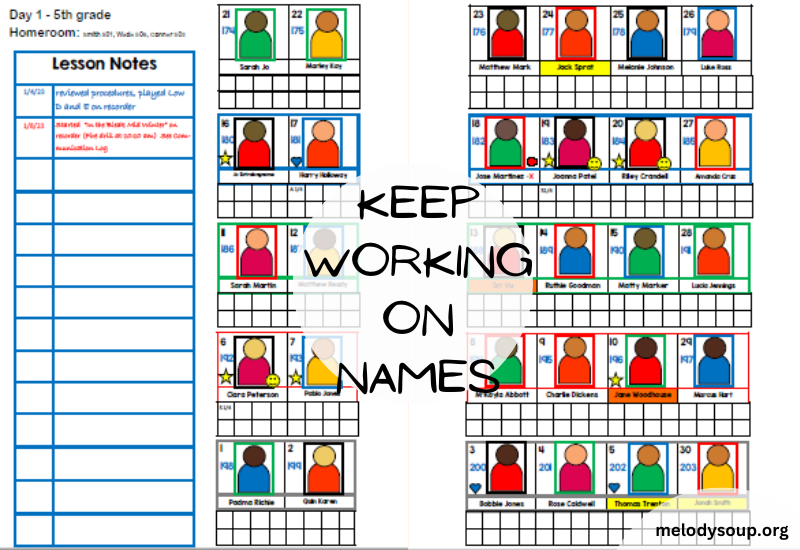
Be Intentional About Keeping the Good Things – If you have an entertaining conversation with a student, write it down. If you experienced an instructional victory, write it down. If a kindergarten student brought you a flower, keep it for a while and then write it down. If the children are playing one of the music class songs at recess, write it down. Keep the cards, save the emails. Make recordings and take pictures (in accordance with your school’s privacy policy of course). Then when things get tough, when you have a bad day or when you feel extra spicy or stressed, take out your folder or box of good things and remember that you are doing good work.
Be Gracious and Considerate with Your Coworkers – Teaching school is hard work and we depend on each other. When adults feel pressured or stress we aren’t always at our best. Do your best to practice being gracious and considerate with your coworkers. Then one day when you need some grace, patience or consideration your coworkers will have some to spare for you. Here are some easy ways to to start:
- Say hello, make eye contact and smile. In these days of pandemic recovery, this is a challenge, and it is the first step toward building a community for yourself as a new teacher at your school.
- When you think about the people you get to work with every day, remember to be gracious and considerate of them. Some of your coworkers are going through really tough seasons. Perhaps their difficulties are at home, but they might also be school related, so always be kind.
- If someone takes care of something so that you don’t have to, or generously reminds you of something that needs your attention, say, “thank you”.
- When a class of students is running late, instead of acting impatient and put out at their tardiness, let them and especially their teacher know that you are glad to see them. One day you may need their grace when they have to wait for you to return from the bathroom.
- When you plan musical events for your school, be mindful of the fact that virtually everything planned during the day will result in an instructional inconvenience for another teacher. Both the art teacher who lets you borrow students for a rehearsal and the grade level teacher who sits in the audience with their homeroom, are making significant adjustments to their day so that your music classes can shine. Musical events are wonderful, and it’s entirely appropriate for the school schedule to make room for those events just like everything else. However, it’s important to be considerate of the gift of time given to you by your peers, by practicing good communication and by ensuring that your “special events” are well planned and organized.
- Get in the habit of giving your last class of the day a few extra moments at the end to “prepare the room” for the custodian. These days our schools are very short handed among all types of support staff, anything we can lessen the load of the support staff we have is worth our time.
- Create a place in your room where the paraprofessionals can access things that might help them support students. A labeled shelf or bin with sticky notes, pens, timers, band aides, hand sanitizer, small water bottles, clinic passes, a cool down kit, fidget toys, communication aides, sound canceling headphones instructional manipulatives are all appropriate. Having such an area for your para-professionals will help them in their efforts to meet the needs of the students they support while also making them feel welcome in your room.
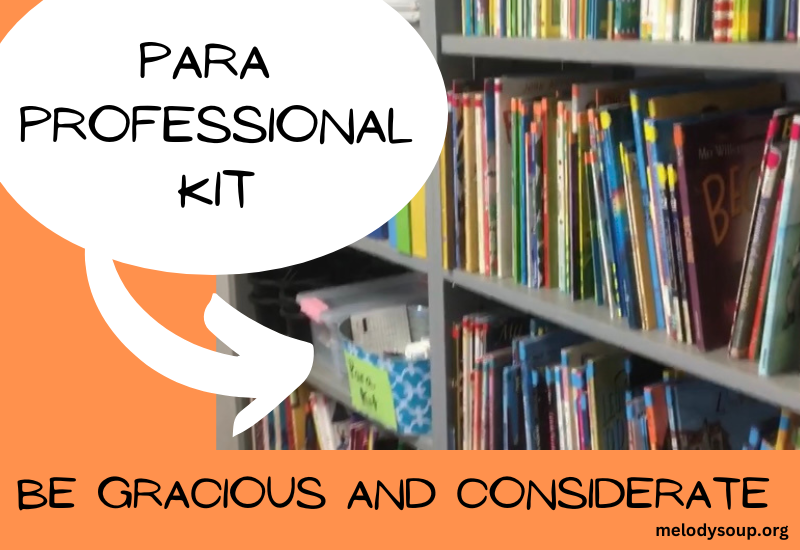
Perhaps while reading this blog post you thought of habits you would like to develop in your music classroom. Whatever habit you choose to focus on, choose one that will bring joy and peace to you and your music room this spring. Please consider sharing a comment about a habit that you plan on developing in your music classroom this spring.
